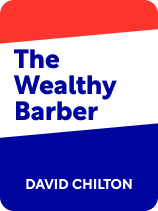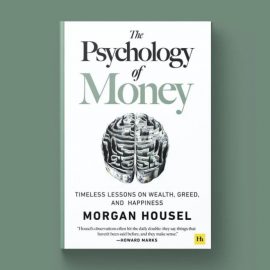

This article is an excerpt from the Shortform book guide to "The Wealthy Barber" by David Chilton. Shortform has the world's best summaries and analyses of books you should be reading.
Like this article? Sign up for a free trial here .
Should you buy a house? What are the advantages? Are there disadvantages?
Even if purchasing a home is within your budget, that doesn’t mean you should necessarily do it. If you choose to rent rather than own, investing the money you save by renting might even be a better investment than owning a home. In The Wealthy Barber, David Chilton writes that home ownership has its advantages and disadvantages.
Keep reading for Chilton’s discussion of the pros and cons of buying a house.
Buy a Home Only If It Makes Sense for You
Buying a home increases your assets and lowers your taxes. For most people, homeownership is an excellent investment. But Chilton points out that you should buy a home only if it’s right for you.
One situation in which it makes more sense to rent rather than own is when you simply can’t afford to purchase a home. Beyond the initial hurdle of coming up with a down payment, you might not be able to afford the mortgage payments, which are often significantly higher than rental payments. (This is due, in part, to the fact that people often size up when they move from an apartment to a home.) Whatever you do, don’t stretch yourself to your limit to afford a home.
Chilton outlines the following pros and cons of buying a house.
Advantages of Homeownership
While there are disadvantages to homeownership (and advantages to renting), Chilton claims that there are also many advantages to homeownership. First and foremost, your home is an asset that you can borrow against or, if it increases in value over the years, you can sell for a profit. Plus, there are tax advantages to owning a home.
Here are some of the primary advantages of owning a home:
- Mortgage interest and property taxes are tax-deductible.
- Most people can also exclude from their income any capital gains they realize when they sell their home (capital gain is the difference between the sales price and the cost basis, which is the amount you paid for the house plus any improvements you made).
- You can borrow against the value of your real estate (mortgage it).
- If you choose to rent your property, you can cover the costs of your mortgage with the rental income.
- If you own your home long enough, you pay off the mortgage and live rent-free.
- Although rent is often cheaper than a mortgage payment, in some cases your monthly mortgage payments are equal to or less than what you would pay in rent.
(Shortform note: While owning a home does have tax benefits, these benefits were significantly reduced for some homeowners due to a 2017 tax law that limited the mortgage interest and property tax deductions. If you took out your mortgage before December 15, 2017, then this law likely doesn’t affect you, and you can still take deductions for property taxes as well as for interest on up to $1 million of debt. If you took out your mortgage after that date, your deduction is limited to interest on $750,000 of debt, and your property tax deductions are capped at $10,000, which includes property taxes plus state and local income taxes or sales taxes.)
If you choose to buy a home, Chilton advises that a fixed-rate mortgage is usually a better choice than an adjustable-rate mortgage. With a fixed-rate mortgage, your costs stay the same, while your income is likely rising over time. If mortgage rates go down, you might be overpaying, but you’ll probably still be able to afford your payments—and you can always refinance. If mortgage rates go up, your rate will stay stable. You’ll never find yourself in a position where you have to sell your house because you can’t afford the mortgage (unless it’s due to circumstances unrelated to the mortgage, such as a job loss).
Disadvantages of Homeownership
Among the disadvantages of homeownership is the fact that homeowners have to pay for things like property taxes, insurance, utilities, upkeep, and home improvements—and they also have to invest the time to stay on top of all of these things. In addition, Chilton notes that many homeowners never benefit from their home’s increase in value over time because they never sell their home. In other words, they never get a return on their investment.
Another important caveat about home ownership is that it’s not a solid financial plan on its own. Investing in a home must take place in conjunction with contributing to a retirement plan, investing in mutual funds, and other financial planning priorities.
(Shortform note: In addition to these disadvantages of homeownership, each of the risks Chilton enumerates with respect to real estate investing applies to owning your own home as well. Another disadvantage of homeownership is the high upfront costs beyond the home’s selling price and the interest rate on your mortgage. For example, you’ll probably pay between 2-5% of the purchase price in closing costs. Experts say you need to live in your house for at least five years to recover those costs.)

———End of Preview———
Like what you just read? Read the rest of the world's best book summary and analysis of David Chilton's "The Wealthy Barber" at Shortform .
Here's what you'll find in our full The Wealthy Barber summary :
- A guide to becoming financially successful by following simple principles
- Why you might not need to buy life insurance
- Why you should only buy a house if it’s right for you






